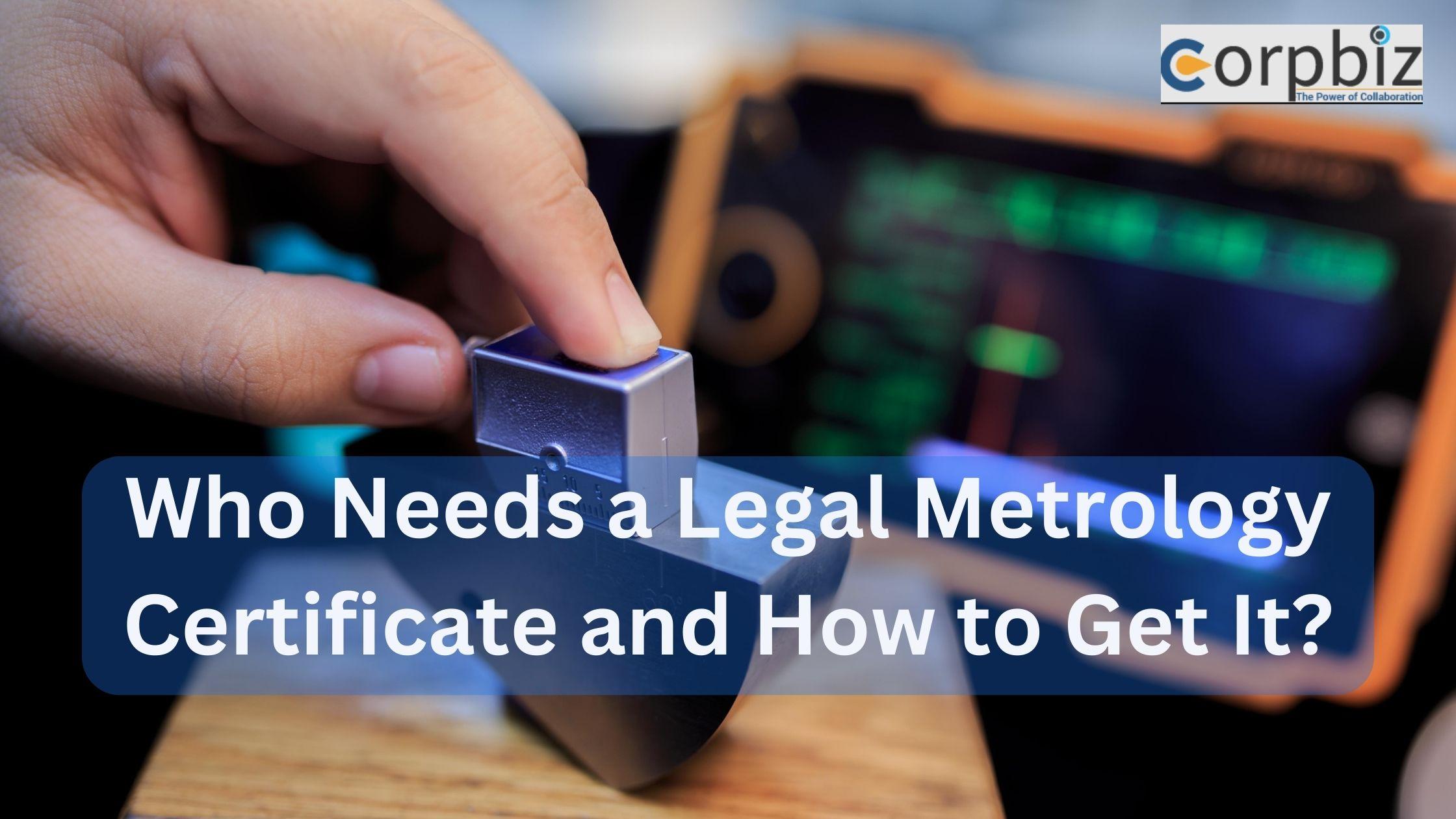In India, all businesses that make, sell, or import products related to weight and measurement need to follow a special law. This law is called the Legal Metrology Act. To follow this law, these businesses must get a Legal Metrology Certificate. This blog will help you understand what the Legal Metrology Certificate is, who needs it, and how you can get it. We will also explain related terms like LMPC Certificate Registration, Legal Metrology Manufacturer License Registration, and Model Approval Certificate for Weight and Measurement Devices.
What is a Legal Metrology Certificate?
A Legal Metrology Certificate is an official license that proves your weighing or measuring equipment is approved by the government. It ensures the weights and measurements used in trade are correct, standard, and fair for consumers.
This certificate is issued by the Department of Legal Metrology under the Ministry of Consumer Affairs in India. It is important because it helps prevent cheating in weight or quantity during business transactions.
Who Needs Legal Metrology Certificate Registration?
If you are involved in the following activities, you need Legal Metrology Certificate Registration:
- Manufacturers of weighing or measuring instruments
If your business makes weighing scales, fuel pumps, thermometers, or similar devices, you need this certificate. - Importers of pre-packaged goods
Importers bringing goods like food packets, cosmetics, or electronics must get LMPC Certificate Registration. - Packers and Re-packers of goods
If you pack or re-pack products before selling, especially in retail, you must register under Legal Metrology. - Retailers or wholesalers selling weighed/measured products
Businesses selling products by weight, length, volume, or number must follow Legal Metrology rules. - Businesses dealing in weight and measurement devices
If you are involved in the marketing, repair, or distribution of such devices, you also need this registration.
Types of Legal Metrology Licenses in India
There are different licenses under Legal Metrology. Each has a different purpose. Let’s look at them:
1. Legal Metrology Manufacturer License Registration
This Legal Metrology Manufacturer license is for companies that manufacture weighing or measuring instruments or devices. The application should be made to the Controller of Legal Metrology in your state.
Documents Required:
- Company registration proof
- PAN and Aadhaar of directors
- Manufacturing facility details
- Model approval certificate (if applicable)
- Layout plan and machinery details
2. LMPC Certificate Registration
LMPC stands for Legal Metrology Packaged Commodities. This certificate is required if you import pre-packaged goods into India.
Why is it important?
The LMPC registration ensures that imported products have labels showing accurate weight, price, expiry, and other key details.
Documents Required:
- Import Export Code (IEC)
- Company registration proof
- GST registration
- Sample product label
- Importer’s photo ID
Where to Apply:
Apply with the Controller of Legal Metrology in the respective state. In some cases, applications can be made online.
3. Model Approval Certificate for Weight and Measurement Devices
Before making or selling any weight or measuring device, you need approval for the model you plan to manufacture or use. This is called the Model Approval Certificate.
Why is it needed?
This certificate ensures that the design and model of the device meet Indian standards and are safe for use.
How to Apply:
You must apply to the Director of Legal Metrology, Government of India. The model is tested in a government lab for accuracy and quality. After successful testing, approval is granted.
Documents Required:
- Design or drawing of the device
- Technical specifications
- Test report from the lab (if available)
- Manufacturer's details
How to Apply for Legal Metrology Certificate Registration?
Here is a step-by-step process to register for any Legal Metrology Certificate:
Step 1: Choose the Right Type of Certificate
Decide if you need a manufacturer license, LMPC registration, dealer license, or model approval.
Step 2: Collect All Documents
Make sure you have identity proof, address proof, company incorporation certificate, GST number, and any product or device details.
Step 3: File the Application
Submit your application either online or offline (depending on your state). Attach all documents and pay the required fees.
Step 4: Inspection
In some cases, an officer may visit your premises to check if everything is in order.
Step 5: Grant of Certificate
Once all is verified, the department will issue your certificate. This usually takes 15 to 30 days.
Benefits of Getting a Legal Metrology Certificate
- Legal Compliance – You avoid penalties and legal action.
- Consumer Trust – Certified products build customer trust and increase business reputation.
- Market Access – You can sell in all states and even export if needed.
- Transparency – It helps in fair trade and accurate billing.
- Avoid Seizure – Without LMPC Certificate Registration, your goods can be seized at customs.
Common Mistakes to Avoid
- Not getting LMPC registration before importing goods
- Using weighing machines without a model approval certificate
- Missing details on product labels
- Not renewing the certificate on time
- Using non-standard weights and measures
Conclusion
Whether you are a manufacturer, importer, or seller, if your business deals with weights and measurements, Legal Metrology Certificate Registration is a must. It helps you stay legally compliant, win customer trust, and run your business smoothly.
If you're unsure about the process or want to avoid mistakes, it's a good idea to consult a legal expert who can guide you through Legal Metrology Manufacturer License Registration, LMPC Certificate Registration, and getting the Model Approval Certificate for Weight and Measurement Devices.
Need help with Legal Metrology registration? Our experts can guide you through the complete process—from documentation to approval—so your business stays fully compliant.
